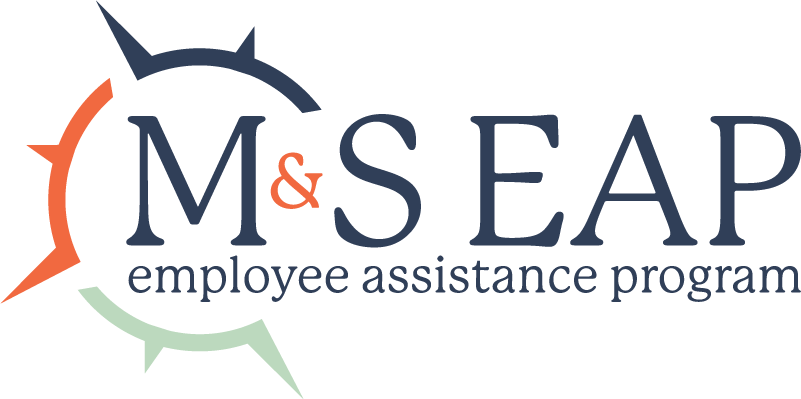5 Ways that You can Deal with Stress in the Workplace Today

We all go through times of stress. A busy work schedule, tight deadlines, financial struggles, adverse life relationships and other factors can make us feel overwhelmed, unproductive and unhappy.
We often brush aside feeling stressed at work, telling ourselves it’s par for the course. While workplace feeling anxious and overworked is common, it’s not inevitable. There are ways that each person can effectively reduce stress at work and methods that can be implemented for long-term benefits.
Whether you’re working from your place of residence or remotely, here are our top five tips for how to deal with stress while you’re on the clock.
Tip #1: Acknowledge the source of your stress
The first step in solving an issue is admitting that there is one, and that requires identifying the ultimate source of the stress. Could it be that your project deadlines feel unattainable? Do you worry that your career has become stagnant? Do you struggle with public speaking for presentations? Do you feel you’ve been unfairly compensated for your efforts?
Regardless of where your stress comes from (coworkers, workload, personal goals), knowing the root cause of heightened distress at work can help you address it, reverse it and conquer it.
Tip #2: Recharge
Remember that your company hired you to be a human employee, not a machine. It’s impossible to be firing on all cylinders and wearing yourself down with tireless effort. You should never be expected to work without breaks and your body and mental stamina cannot endure an entire workday without rest without sacrificing some quality of work.
In order to manage stress at work, aim for numerous short breaks at regular intervals throughout the day. Even five to ten minutes an hour can offer major perks. Try to get away from your screen and incorporate movement, like going for a walk, stretching or catching up with a friend.
Remember to use your time off, too. You are entitled to use your vacation days, sick days, mental health days and personal days per your contract.
Tip #3: Make organization a priority
One of the best tips for how to deal with stress at work is to make your workspace organized and inviting. Simply starting the day in a messy space can start you off feeling swamped and anxious. Get yourself organized and motivated by cleaning up your space.
Use a desk organizer
Try reducing stress at work by creating an easy system for handling papers. When you use a desk organizer, your files will essentially organize themselves, provided you use the organizer accurately as you accrue papers. Implement similar organization hacks for office supplies, projects, memos and so forth.
Eliminate the clutter
It’s likely that if you don’t use an item on a weekly basis, you don’t need it on your desk. Aim to store most of your paperwork online in a database that’s easily marked and quick to access. Remember to frequently clean up your desktop space, too. Even if you don’t work at a desk, you can ensure your space is clean.
If you can, go digital
If you’ve ever misplaced a document or folder at work, you know the hassle it can cause. Solve the issue by digitizing all incoming files, and editing them online. Your progress will be much more easily be saved, and with the right apps and technology capabilities, you can access your files from anywhere.
You’ll find that your physical space is neater, and you can quickly scan through hundreds or thousands of documents with search features. When you create a useful digital sorting system, you’ll have found that reducing stress at work is easier to do than you first thought.
Tip #4: Don’t aim for perfectionism
You were not hired with the expectation that you would fulfill your job duties perfectly without a single hiccup and exceed your responsibilities in every area. People make mistakes, and the minor errors employees make matter little in comparison to the creativity and productivity workers give to their companies.
Acknowledging that workplace mistakes are inevitable is key to decreasing stress at work. Even big issues can typically be solved with honesty and collaboration. Remember, a mistake at work does not diminish your value as a person, and perfectionism isn’t a realistic standard to have for yourself.
Tip #5: Get support
If you’ve ever felt imposter syndrome or the feeling that you’re inadequate and others will eventually find out and think less of you, you’re far from alone. We’ve all fell victim to thinking we’re unable to fulfill our roles and the expectations we perceive others to have of us can cause extreme pressure.
Admitting your own limitations isn’t a weakness, it demonstrates strength. Employees who have the self-awareness to see their own boundaries and express them to employers will feel less stress and feel a higher ability to self-actualize their career goals.
Manage stress with an EAP
Coping with stress at work isn’t something that can easily be done alone. Even from the first step of identifying the root cause of stress, it can be hard to have the right perspective to discern the source of anxiety. If you’re feeling overwhelmed or overworked, an employee assistance program can help.
EAPs are designed to offer free resources to employees. Counseling, career planning, financial advice and more are all part of an EAP and can mitigate employee stress to maximize a positive work culture and productivity. If your employer doesn’t use an EAP, consider sharing about Mazzitti & Sullivan’s proven benefits.
Address workplace stress with Mazzitti & Sullivan EAP today.



